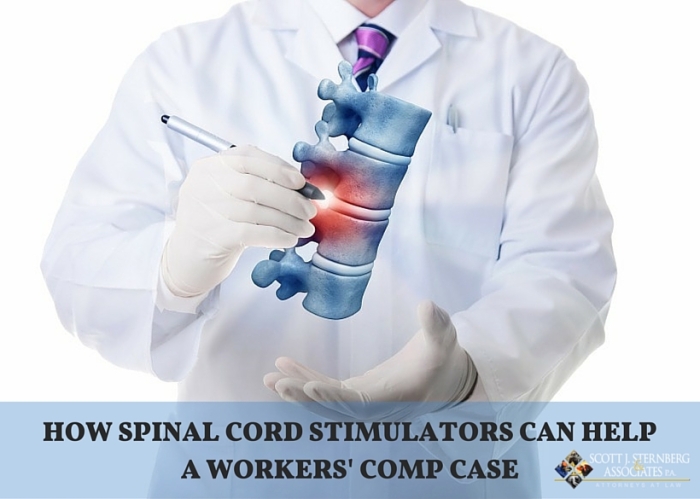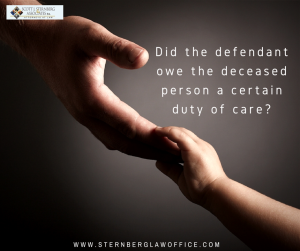
If we never forget that we are one nation under god, then we will be a nation gone under. Happy 4th of July!!

If we never forget that we are one nation under god, then we will be a nation gone under. Happy 4th of July!!
Do Workers Compensation Cover Injuries And Long Term Problems In Florida?
If you have been injured at the workplace, then you should go for filing the workers compensation claim. Before filing a claim you must know about the claim process in Florida.
Here are the important tips for before filing a workers compensation claim:
1. It is critical that you report your workplace injury claim within 30 days.
2. Visit the physician which is designated by the employer. If you see your own doctor, you may not be compensated for those medical services.
3. Receive the documentation from your employer about the claim process.
Learn More :
In a workers compensation case witness is very important. When you have no witness for your workers compensation case you can do the following things:
Lean More at http://www.sternberglawoffice.com/filing-your-workers-compensation-claim-what-if-no-one-saw-me-get-hurt/
Spinal cord stimulation is an option for those who have had multiple back surgeries, but who still continue to have back problems. If your physician recommends getting a spinal cord stimulator, it is much more likely that your employer will approve the treatment. The effectiveness of this treatment varies a great deal, and it is still a very new process. However, for some, it has been effective when nothing else seems to stop their back pain.

Believe it or not, spinal cord stimulators have been in existence since at least the 1960s. They are used to treat pain problems, especially problems that involve the lower back and leg pain. Specifically, they are used when other methods of pain management or surgery have failed.
Although the FDA approved this treatment in 1989, the workers’ compensation world has only recently begun approving this type of treatment for workers’ compensation participants.
A spinal cord stimulator applies an electrical current to the source of the patient’s pain. In essence, the electricity replaces the pain that the body feels. This tricks the brain into thinking that the sensation is pleasurable instead of painful because it blocks the brain’s ability to sense the pain in that area.
The stimulator is actually implanted into the body using one of two methods. In the first method, thin wires are placed near the spinal column. The doctor will use a small, specialized needle for this procedure. Using this method, the doctor does not need to make an incision into the back. The doctor will, however, need to make an incision to place the generator in the back. It is usually placed in the upper buttock or abdomen area, under the skin. The generator does have batteries that will need to be changed periodically—usually every eight years with normal use.
The second method also involves a generator and leads. Technically, it is not called spinal cord stimulation. It is known as Peripheral Nerve Field Stimulation. However, the only real difference is that the leads are just under the skin instead of near the spinal column. The leads are placed in close proximity to the nerves that are causing the pain.
In both methods, the generator is programmed in a way that will help you get the most out of your stimulation. However, getting the program just right is sometimes difficult to do. It takes time to get the program right, and patients may not see results right away. Your doctor can change the intensity, the area that receives the electrical current, and even turn it on and off to fit your needs. It comes with a TV-like remote to control many of these variables.
One of the main reasons that workers’ compensation beneficiaries like spinal cord stimulators is because they seem to help when doing else does. Although there is a surgery to implant the device, it is minimally invasive.
There are, however, a few cons to using this device. The first is that it may not work for everyone, and not everyone is a candidate to use this type of treatment. You must first go through a trial to determine if this type of treatment will fit with your unique situation. In addition, some studies indicate that the stimulator will work as a short-term solution, but may not work in the long term.
Second, it can be very costly. In workers’ compensation, your medical expenses will generally be covered as long as they are recommended and performed by an authorized physician. Without this recommendation, you may need to pay for your medical procedures yourself. According to one study done in 2011, the mean medical cost for this device over a 24-month period was $52,091. Obviously, if workers’ compensation does not pay for it, then it can cause some serious budgetary concerns.
You must weigh the pros and cons for yourself. What works for one workers’ compensation beneficiary may not work for the next. Your doctor and your West Palm Beach Florida workers’ compensation attorney can help you with this process and decision if you think this treatment may be an option that may help you.
Sources:
http://www.sternberglawoffice.com/a-quick-guide-to-estimating-workers-compensation-benefits/
http://www.ncbi.nlm.nih.gov/pubmed/21738098
http://www.spine-health.com/treatment/back-surgery/spinal-cord-stimulation-chronic-pain
One of the greatest benefits behind workers’ compensation is that it is a no-fault system. That means that as long as you meet certain qualifications, adhere to all requirements, then applying for benefits will be easier.
The employer’s primary concern is that the injury did, in fact, happen while you were at work. There are only a few exceptions to this general rule.
Read More at http://www.sternberglawoffice.com/what-if-my-work-accident-was-my-own-fault/
Florida ranks high in total number of on-the-job injuries, following only Texas and California. Specific industries have a higher rate of injuries than others. Florida is unique in that some of our industries have a very different accident occurrence level than most of the United States.
In 2013, there were approximately 4,400 fatal work injuries that occurred across the United States. This means that there are roughly 12 work-related deaths every day. Transportation accidents produced the highest number of fatalities in the United States. Read More at http://www.sternberglawoffice.com/top-fatal-work-related-accidents-and-deaths-in-florida/
Fireworks are meant to be fun and exciting. They are used throughout July to celebrate our nation’s birthday, but also tend to be the number one cause of residential fires during the summer.
On July 6th, fire crews and investigators were looking into a fire that took down million-dollar home. Investigators believed that bottle rockets and Roman candles were to blame for this waterfront property in Sewall’s Point being destroyed.
The blaze was spotted by a fisherman around 1:30am in the morning and the damage is estimated to be around $500,000. The home was listed only a few months ago with a purchase price of $2.25 million.
Unfortunately, this costly event has served as a reminder to those that set off fireworks for any holiday – there are risks. Also, it has highlighted the potential issue of premise liability – and how setting fireworks off can put numerous individuals at risk.
Fireworks are known to cause injury and property damage. In this event, if someone was burned or died while in the house during the fire, the homeowner’s would be liable for those injuries.
Even if the house had not caught fire, if someone is injured by fireworks on a person’s property, they have a potential premise liability case.
To bring a premise liability claim to the courts, it is important that the attorney identify the person that is responsible for the property.
The law states that a person is in possession of the property when:
Not all injured parties are eligible for premise liability claims. A person must be invited or a licensee of the property in order to file a claim against the property owner.
For example, a guest at a home that is burned by a firework would be eligible to collect compensation under a premise liability claim.
But, if a person had no permission to be on the property or was trespassing and injured by fireworks, they would not have a valid claim for premise liability – because the owners were under no requirement to provide care or reasonable care to a trespasser.
In Florida, to purchase fireworks you must sign a waiver of liability – stating that you will not sue the company selling you the fireworks for any injuries or losses.
This protects the retailer from anyone’s unauthorized or misuse of the fireworks, but what if the firework itself was defective?
If the firework was defective and the retailer knew this, a liability waiver may not protect them from a lawsuit. Also, if the waiver has ambiguous or misleading wording, it may not be honored by the courts.
If you or a loved one has been injured by someone’s fireworks or by faulty fireworks, contact the personal injury lawyer at Scott J. Sternberg & Associates today for a free consultation.
We will assess your case and help explore your options for compensation. Call now to get started.

Did the defendant owe the deceased person a certain duty of care? Call us for free consultation. 561-687-5660
Read more http://www.sternberglawoffice.com
Workers’ compensation benefits are there to help those who need medical care, rehabilitation, or even disability coverage after suffering from a work-related injury. As a minor, you may be wondering if your age will affect your ability to receive workers’ compensation benefits in Florida.
Yes, under Florida law a minor is eligible to receive workers’ compensation benefits as long as they were injured while performing within the parameters of their job. Therefore, if you work retail as a 16-year old and you are injured at work from lifting a heavy object to stock shelves, you would qualify for workers’ compensation just as much as a 30-year old.
Age does not affect eligibility for workers’ compensation benefits and if an employer leads you to believe that your age status will, you should contact an attorney right away.
Florida law requires all employers with four or more employees to have workers’ compensation insurance. In construction, however, the requirement falls to just one employee. Only employees are eligible for workers’ compensation, regardless of age. These can include:
There are instances when a person will not qualify for workers’ compensation benefits. These situations can include:
The law clearly states you must have an injury that occurred while performing a job-related task in order to qualify for workers’ compensation. If you are injured at home and it is not related to work, then you cannot claim workers’ compensation. Also, you must notify your employer within 30 days of the work-related injury with the effects of the injury, the date it occurred, and the date you received medication attention and a diagnosis.
If you do not report your injury within the 30-day window, then the employer’s insurer is not liable for covering your injuries and you could lose your opportunity to receive any benefits. Therefore, it is imperative that you notify a supervisor immediately to avoid any issues with eligibility.
You are entitled to the same level of benefits as an adult. These benefits can include medical care, lost wages, and even disability if you are permanently injured. If you are unable to return to work, then you will receive a lump sum payout rather than weekly payments. Also, depending on your work history and work restrictions after the accident, you may receive permanent disability.
If you were injured on the job, contact Boca Raton work injury attorneys at Scott J. Sternberg & Associates today for a free consultation. Even if you are a minor, you are entitled to workers’ compensation. So call us for your appointment at 561-687-5660 now.